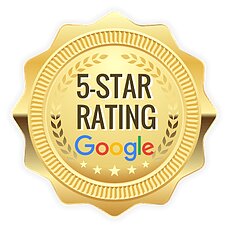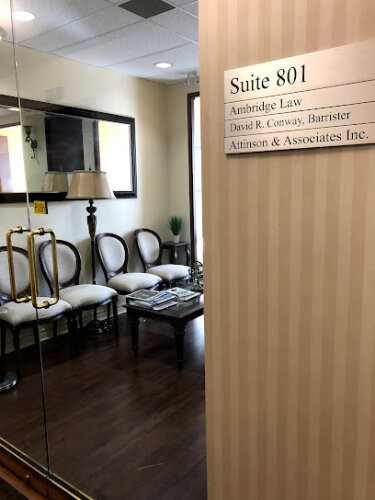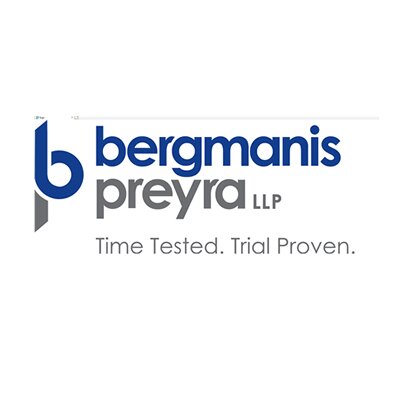Best Accidents & Injuries Lawyers in Toronto
Share your needs with us, get contacted by law firms.
Free. Takes 2 min.
List of the best lawyers in Toronto, Canada
Canada Accidents & Injuries Legal Articles
Browse our 1 legal article about Accidents & Injuries in Canada written by expert lawyers.
- What to Do After a Serious Car Accident in Canada: A Guide
- Most provinces have a 2-year limitation to sue for injury, counted from when you knew or ought to have known you had a claim. Quebec is 3 years. Municipal notice deadlines can be as short as 7-60 days. Auto injury rules vary sharply by province: BC and Quebec use largely... Read more →
About Accidents & Injuries Law in Toronto, Canada
Accidents and injuries law, also known as personal injury law, encompasses a broad range of legal issues that arise when an individual is harmed due to the negligence or intentional actions of another party. In Toronto, as in the rest of Ontario, this area of law is designed to help victims of accidents and injuries seek compensation for their losses, including medical expenses, lost income, and pain and suffering. Legal cases can involve anything from motor vehicle collisions and slip-and-fall incidents to medical malpractice and workplace injuries. Navigating the aftermath of such incidents can be complex, making an understanding of local laws and regulations crucial for those seeking justice and fair compensation.
Why You May Need a Lawyer
There are many situations in which consulting a lawyer can be beneficial following an accident or injury. If you've been involved in a car accident and the insurance company is disputing your claim, a lawyer can help ensure that your rights are protected and that you receive the compensation you deserve. Additionally, if you've been injured on someone else's property or during a medical procedure gone wrong, legal advice is crucial to navigate the complexities of liability and negligence. In cases where serious injuries have occurred, and there might be long-term impacts on your life, legal guidance can help in thoroughly evaluating the possible compensation due.
Local Laws Overview
In Toronto, and Ontario more broadly, several key legal principles govern accidents and injuries cases. The province operates under a "fault" insurance system for car accidents, where the party responsible for causing the accident is liable for damages. Ontario also has a "no-fault" insurance system that allows individuals to recover some costs from their own insurance companies irrespective of who is at fault. Additionally, the Occupiers' Liability Act imposes a duty of care on property owners to ensure the safety of entrants. Another crucial aspect is the Statutory Accident Benefits Schedule (SABS), which provides for no-fault benefits to those injured in vehicular accidents. It's important to note that there are specific time limits, known as statutes of limitations, for filing personal injury claims, making timely legal consultation vital.
Frequently Asked Questions
What should I do immediately following an accident?
Immediately following an accident, ensure you and others involved are safe. Seek medical attention, report the incident to the police if necessary, document evidence, and contact your insurance provider. Consulting a lawyer early can protect your rights.
How is fault determined in an accident?
Fault is determined by evaluating the evidence surrounding the accident, including police reports, witness statements, and other relevant information, to ascertain which party was negligent.
What types of compensation can I expect in a personal injury claim?
Compensation may cover medical expenses, rehabilitation costs, lost income, pain and suffering, and in some cases, punitive damages intended to penalize the negligent party.
How long do I have to file a personal injury lawsuit in Toronto?
The general limitation period for filing personal injury lawsuits in Ontario is two years from the date of the accident, though some exceptions may apply. Consulting with a lawyer promptly is advised.
Can I handle my injury claim without a lawyer?
While it's possible to handle minor claims on your own, significant cases involving complex laws or large settlements often benefit from professional legal representation to ensure fair compensation.
How are pain and suffering damages calculated?
Damages for pain and suffering are calculated based on the severity of the injury, the impact on the victim's life, precedent cases, and sometimes expert testimony. Ontario has a cap on pain and suffering damages.
What is the role of insurance after an accident?
Insurance plays a pivotal role in compensating for medical expenses and damages to property. It also often covers some income lost due to injury, though disputes may arise requiring legal intervention.
Are there provisions for workplace injuries?
Yes, Ontario's Workplace Safety and Insurance Board (WSIB) provides benefits to workers injured at work. In cases of severe negligence, additional legal options may be pursued outside WSIB.
What is contributory negligence?
Contributory negligence occurs when the injured party is found partially at fault for the accident. This can reduce the compensation they are entitled to based on their degree of fault.
How can a personal injury lawyer assist me?
Personal injury lawyers can assist by evaluating case potential, negotiating with insurers, gathering evidence, securing expert testimony, and representing you in court if necessary, ensuring that your rights and interests are vigorously defended.
Additional Resources
For individuals seeking further assistance or information, several resources can be invaluable. The Ontario Ministry of the Attorney General provides guidance on filing claims, while organizations like the Ontario Bar Association can help find qualified lawyers specializing in personal injuries. The Financial Services Regulatory Authority of Ontario (FSRA) offers insights into insurance claim disputes. Additionally, the Ontario Trial Lawyers Association provides resources and support for victims seeking legal redress.
Next Steps
If you find yourself in need of legal assistance following an accident or injury, it is critical to act promptly. Start by documenting all relevant details and evidence related to your case, including medical records, police reports, and witness lists. Next, seek out a qualified personal injury lawyer experienced in Toronto’s legal landscape for a consultation. Many lawyers offer free initial consultations, where they can assess the validity of your case and provide an understanding of your legal rights and options. Take advantage of these consultations to ask questions, clarify doubts, and decide on the best course of action for pursuing your claim.
Lawzana helps you find the best lawyers and law firms in Toronto through a curated and pre-screened list of qualified legal professionals. Our platform offers rankings and detailed profiles of attorneys and law firms, allowing you to compare based on practice areas, including Accidents & Injuries, experience, and client feedback.
Each profile includes a description of the firm's areas of practice, client reviews, team members and partners, year of establishment, spoken languages, office locations, contact information, social media presence, and any published articles or resources. Most firms on our platform speak English and are experienced in both local and international legal matters.
Get a quote from top-rated law firms in Toronto, Canada — quickly, securely, and without unnecessary hassle.
Disclaimer:
The information provided on this page is for general informational purposes only and does not constitute legal advice. While we strive to ensure the accuracy and relevance of the content, legal information may change over time, and interpretations of the law can vary. You should always consult with a qualified legal professional for advice specific to your situation.
We disclaim all liability for actions taken or not taken based on the content of this page. If you believe any information is incorrect or outdated, please contact us, and we will review and update it where appropriate.
Browse accidents & injuries law firms by service in Toronto, Canada
Toronto, Canada Attorneys in related practice areas.
















